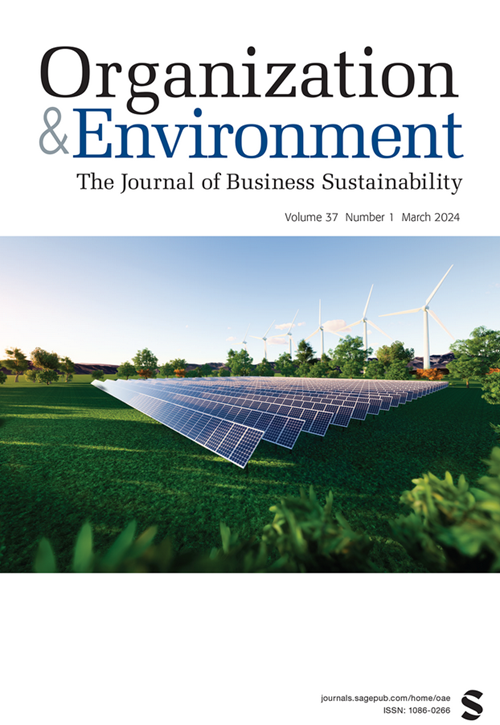将潜在的“坏消息”合法化:公司如何在可持续发展报告中披露其紧张经历
IF 4.2
4区 管理学
Q1 ENVIRONMENTAL STUDIES
引用次数: 7
摘要
企业可持续发展的实践充满了妥协;它涉及到在相互竞争的社会、环境和经济目标之间、在广泛的不同利益相关者之间以及在不同的时间之间不可避免的紧张关系。本研究的目的是确定公司是否以及为什么在其可持续性报告中报告紧张局势决策。这项研究以加拿大一组最大的公司为基础,分析了可持续发展报告和对可持续发展经理的采访。研究发现,样本中92%的报告公司都遇到过可持续性紧张,但没有在报告中明确披露这些讨论。然而,这些说法的证据存在于报告的隐含(或潜在)内容中,围绕着“合法化谈话”——对公司承诺的肯定和对可持续性原则的展示。这些发现突显了许多公司对紧张局势(称为“坏消息”)的负面看法,以及其披露造成的潜在合法性威胁。本文章由计算机程序翻译,如有差异,请以英文原文为准。
Legitimizing Potential “Bad News”: How Companies Disclose on Their Tension Experiences in Their Sustainability Reports
The practice of corporate sustainability is beset with compromise; it involves inevitable tensions across competing social, environmental, and economic objectives, across a wide range of divergent stakeholders and across time. The purpose of this study is to determine whether, and why, companies are reporting on tensions decisions in their sustainability reports. This study relies on a group of the largest companies in Canada and analyzes sustainability reports and interviews with sustainability managers. The study finds that 92% of all reporting companies in the sample had encountered sustainability tensions but had failed to disclose these discussions explicitly in their reports. Evidence of these accounts are nevertheless present in the implicit (or latent) content of the reports, surrounded by “legitimizing talk”—affirmations of the companies’ commitment to, and demonstration of sustainability principles. These findings highlight the negative light in which many companies perceive tensions (as “bad news”) and the potential legitimacy threat that their disclosure poses.
求助全文
通过发布文献求助,成功后即可免费获取论文全文。
去求助
来源期刊

Organization & Environment
Multiple-
CiteScore
11.20
自引率
5.70%
发文量
19
期刊介绍:
Organization & Environment encourages informed discussion about the social roots and consequences of environmental problems and stimulates deeper reflection on the meaning and significance of the natural world. By critically examining the impact of human production and consumption systems on the natural environment, Organization & Environment develops new perspectives on organizations that encourage environmentally sensitive reflection, inquiry, and practice.
 求助内容:
求助内容: 应助结果提醒方式:
应助结果提醒方式:


